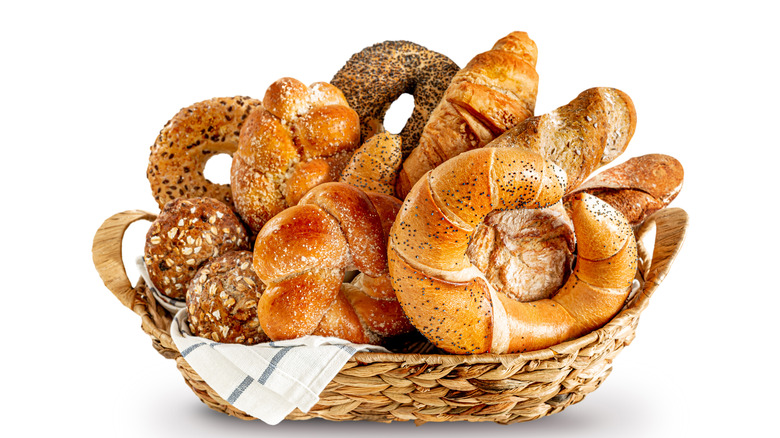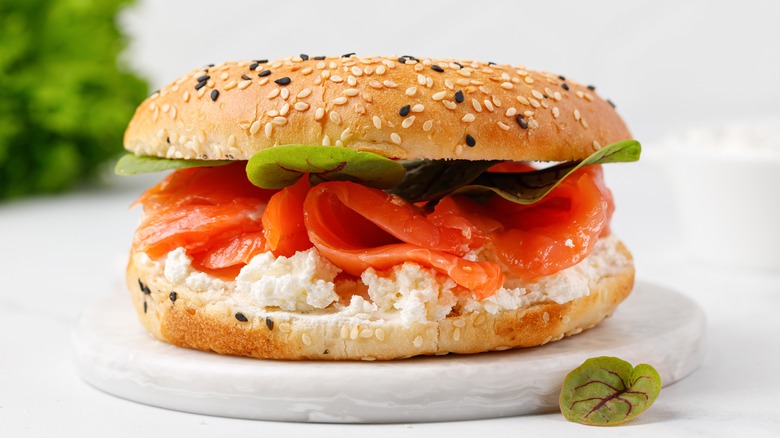What's The Real Difference Between Beigels And Bagels?
Bagels have a long and convoluted history. The Encyclopedia Britannica states that the first verifiable account of leavened, boiled, and baked bread dates back to the 1300s. And reports from the Polish Royal Court record a bread called "obwarzanek." Even if the name was quite different, the provided description is spot-on for what we call a bagel.
There's another legend that gives credit to a Viennese baker, too. Supposedly he created the stirrup-shaped bread to commemorate King John III Sobieski's victory over invading Turks. And Jewish immigrants brought bagels to the U.S. when they began arriving in numbers during the 19th century. The Nosher reports that at the time, bagels were carried on strings or poles and sold as street food on New York City's Lower East Side.
To say they were popular would be an understatement, and fans' love for this doughy bread has not waned. Statista reports that more than 200 million American households eat bagels yearly. But the question we want answered is why the word "beigel" became "bagel."
Beigel or bagel?
Technically, the correct spelling is beigel, and you pronounce the EI as in Einstein. The word beigel itself is Yiddish and historically spelled beygl in Eastern Europe (via Etymology Online). The bread and the word were brought to U.S. shores by Jewish immigrants who arrived in the 1800s. But from there, the story gets a little muddied.
How beigels became bagels is not precisely known. However, thanks to GrubStreet, we know that Union Local 338 of the Bakery and Confectionery Workers (B&C) was established before the 1920s and was known as the Bagel Union. Who changed the spelling or why is a bit of a mystery.
Even etymologists fail to offer an exact explanation. But the theory that seems to hold the most promise is that it's simply an Americanisation of the Yiddish word. As the popularity of the boiled and baked bread spread beyond their traditional market, Americans added a colloquial touch by altering the spelling. Just as cheque became check, beigels became bagels. But beyond the spelling, there's no real difference between the two.

